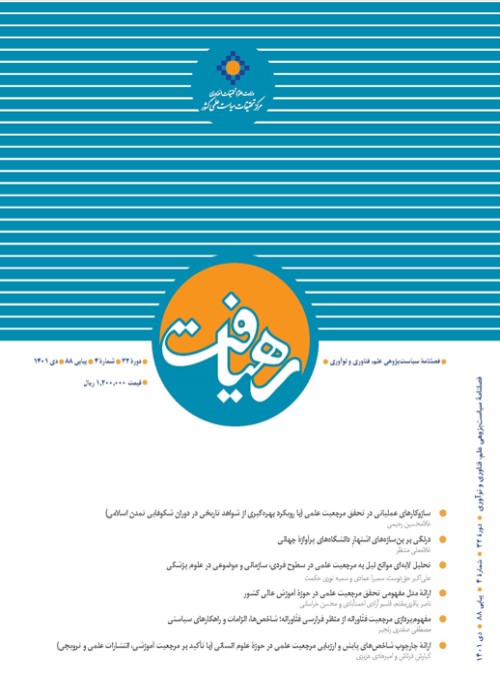Investigating the distributional effects of knowledge-based economy in selected Islamic countries (Fully Modified Least Squares Approach)
Income inequality is one of the big challenges in Islamic countries, a lot of research has been done on reducing income inequality in different ways. Today, knowledge-based economy is mentioned in the economic literature and is considered as an important and influencing factor on income inequality. Knowledge-based economy with self-creation, creativity and innovation, technological progress, structural adjustments in important economic sectors, improving the efficiency of production inputs, reforming business processes. It brings economic growth with income equality between income groups. The effect of knowledge-based economy and its components including knowledge index, incentive system, education and innovation on the reduction of income inequality among Islamic countries is the aim of this research. By using the econometric method of panel data (completely modified least squares), the factors affecting the reduction of income inequality in the countries Islamic countries (Iran, Iraq, Lebanon, Pakistan, Qatar, Tajikistan, Turkmenistan, Saudi Arabia, Egypt, Bahrain and Syria) have been estimated during the years 2008 to 2019. In order to check the stability of the variables and also the long-term relationship between the variables, the unit root test and the Kao cointegration test have been used. The results show that the increase in the combined component of the knowledge-based economy, which is obtained from the four components of knowledge, education, innovation and incentive system, has reduced inequality in Islamic countries have become such that with a one percent increase in the knowledge-based economy component, the Gini coefficient decreases by 01 percent. The education component has a negative and significant effect on income inequality in such a way that a one percent increase in the education component reduces income inequality by 0.27 percent in Islamic countries. The knowledge component also has a negative and significant effect on income inequality in Islamic countries, in such a way that a one percent increase in knowledge causes a 0.007 percent decrease in income inequality, as well as an increase in GDP and inflation also affects the income inequality of countries. Therefore, economic policy makers in Islamic countries aim to reduce Inequality between income, in addition to economic prosperity and applying monetary and financial discipline policies to control inflation, increasing educational skills, increasing growth and technology centers, suitable business conditions and developing new businesses should be on their agenda.
- حق عضویت دریافتی صرف حمایت از نشریات عضو و نگهداری، تکمیل و توسعه مگیران میشود.
- پرداخت حق اشتراک و دانلود مقالات اجازه بازنشر آن در سایر رسانههای چاپی و دیجیتال را به کاربر نمیدهد.



